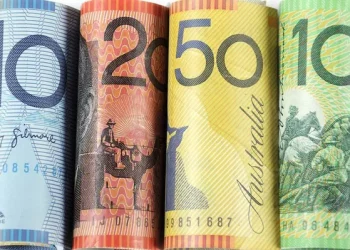The foreign exchange (forex) market is a dynamic and ever-evolving arena where currencies are traded. Understanding currency values is crucial for businesses, investors, and travelers. In this article, we will explore how much $100 Singapore dollars (SGD) is in Australian dollars (AUD). We will examine the factors influencing exchange rates, the process of currency conversion, and the implications of these rates for individuals and businesses.
Understanding Currency Exchange
Before we dive into the specifics of SGD to AUD conversion, it’s important to understand what currency exchange is and how it operates. Currency exchange refers to the process of converting one currency into another. This conversion is facilitated by financial institutions and forex markets, where currencies are traded.
Currency Pairs and Exchange Rates
In the forex market, currencies are quoted in pairs. For example, the SGD/AUD pair represents the exchange rate between Singapore dollars and Australian dollars. The exchange rate indicates how much of one currency you need to spend to purchase a unit of another currency. For instance, if the exchange rate for SGD to AUD is 0.95, it means that 1 Singapore dollar can be exchanged for 0.95 Australian dollars.
The Role of Central Banks
Central banks play a significant role in determining exchange rates. They manage monetary policy, interest rates, and inflation, all of which influence currency values. For example, if the Reserve Bank of Australia (RBA) raises interest rates, it can attract foreign investment, increasing demand for the Australian dollar and driving up its value against other currencies.
Current Exchange Rate: SGD to AUD
To determine how much $100 Singapore dollars is in Australian dollars, we need the current exchange rate. Exchange rates fluctuate frequently due to various factors, including economic indicators, geopolitical events, and market sentiment.
Checking the Exchange Rate
As of the latest data, the exchange rate for SGD to AUD is approximately 1.13. Therefore, to convert $100 SGD to AUD, we can use the following formula:
AUD=SGD×Exchange Rate
Substituting in our values:
AUD=100×1.13=113
Thus, $100 Singapore dollars is equivalent to approximately $113 Australian dollars.
See Also: What is the Singapore Basic Dollar?
Factors Influencing the Exchange Rate
The exchange rate between SGD and AUD is influenced by various factors. Understanding these factors can help investors and individuals make informed decisions regarding currency conversion and investment.
Economic Indicators
Economic indicators are statistical measures that provide insight into the economic performance of a country. Key indicators include gross domestic product (GDP), unemployment rates, and inflation. Strong economic performance in Australia compared to Singapore can lead to a stronger AUD, affecting the exchange rate.
Interest Rates
Interest rates set by central banks influence currency values. Higher interest rates attract foreign investment, increasing demand for the currency and driving up its value. Conversely, lower interest rates can weaken a currency. Monitoring interest rate changes in both Australia and Singapore is crucial for understanding exchange rate movements.
Political Stability
Political stability plays a vital role in currency values. Countries with stable governments and predictable policies tend to attract foreign investment, bolstering their currency. In contrast, political instability can lead to currency depreciation. Evaluating the political climate in both Australia and Singapore can provide insights into potential fluctuations in the exchange rate.
Trade Relations
The trade balance between Australia and Singapore can also influence the SGD/AUD exchange rate. A trade surplus for one country indicates higher demand for its currency, while a trade deficit can weaken it. Understanding the trade dynamics between these two nations is essential for assessing currency movements.
Historical Context of SGD to AUD Exchange Rate
Examining the historical context of the SGD to AUD exchange rate can provide valuable insights into how the currency relationship has evolved over time. Currency exchange rates are influenced by economic cycles, global events, and market trends.
Historical Trends
In recent years, the SGD has generally appreciated against the AUD, reflecting Singapore’s strong economic performance and trade surplus. However, fluctuations can occur due to changes in interest rates, economic growth, and geopolitical events.
Currency Volatility
Currency values can experience significant volatility due to market sentiment and external factors. Sudden changes in the global economy, such as a financial crisis or natural disasters, can impact currency exchange rates. Understanding the historical volatility of the SGD/AUD pair can help investors manage risks associated with currency fluctuations.
Currency Conversion Process
Converting SGD to AUD involves several steps, which can vary depending on the method used for the conversion. Here are the common ways to exchange currency:
Currency Exchange Services
Currency exchange services, such as banks and currency exchange kiosks, facilitate the conversion of currencies. When exchanging SGD for AUD, it’s essential to compare rates offered by different providers, as they may vary. Additionally, service fees can impact the final amount received.
Online Currency Exchange Platforms
Online currency exchange platforms allow users to convert currencies digitally. These platforms often offer competitive rates and lower fees compared to traditional banks. When using online services, ensure that they are reputable and secure.
Peer-to-Peer Currency Exchange
Peer-to-peer currency exchange platforms connect individuals who wish to exchange currencies directly. This method can be cost-effective, as users can negotiate rates without intermediaries. However, it may involve more risk due to the lack of regulation.
ATMs and Banks Abroad
Using ATMs to withdraw local currency while traveling can be a convenient way to exchange money. However, it’s essential to be aware of foreign transaction fees and the exchange rates used by the bank that operates the ATM.
Implications of Currency Conversion
Understanding the implications of converting SGD to AUD is essential for individuals and businesses. Here are some key considerations:
Travel
For travelers moving between Singapore and Australia, knowing the exchange rate is crucial for budgeting. A favorable exchange rate can enhance purchasing power and allow travelers to enjoy more experiences during their trips.
Investments
For investors, currency fluctuations can significantly impact the returns on international investments. A decline in the value of the AUD against the SGD can erode investment returns for Australian investors holding Singapore assets.
Business Operations
Businesses engaged in international trade must carefully monitor exchange rates to manage risks associated with currency fluctuations. Effective risk management strategies, such as hedging, can help mitigate potential losses due to adverse exchange rate movements.
Remittances
Individuals sending money from Singapore to Australia should be aware of the exchange rates and fees associated with remittance services. Optimizing the timing and method of sending money can lead to more favorable rates and lower costs.
Conclusion
In summary, the current exchange rate of $100 Singapore dollars is approximately $113 Australian dollars. Understanding the factors influencing exchange rates, the currency conversion process, and the implications of currency exchange is essential for individuals and businesses alike.
Staying informed about economic indicators, interest rates, and political stability can help individuals and investors make educated decisions regarding currency conversion and investment. As the foreign exchange market continues to evolve, a proactive approach to currency management will be vital for navigating the complexities of international finance.
In a globalized world where currencies are constantly fluctuating, being equipped with knowledge about currency exchange is more important than ever. Whether traveling, investing, or conducting business internationally, understanding how much your money is worth in different currencies can have significant financial implications.
Related Topics:
























